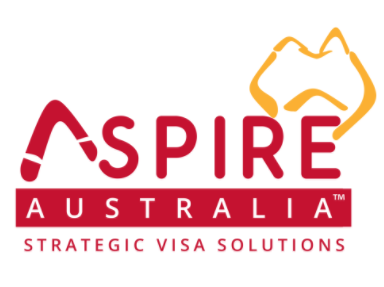If you’re a skilled worker wanting to live and work in Australia, it’s likely you’ve looked into the General Skilled Migration Programme.
Reading through the information on the Department of Home Affairs website, you will have come across terms like the Skilled Occupation List, making an Expression of Interest, state sponsorship and passing a points test.
But what does all this mean in relation to your eligibility? If you can achieve the threshold of 65 points, does this mean you will be invited to apply for a visa?
Not necessarily.
Your strategy for accumulating points is, without doubt, the most important part of your application.
Candidates with active Expressions of Interest (EOI) must be invited to apply for a visa by the Department of Home Affairs. Those with the highest point score will be invited first.
So what are your options for achieving the maximum points possible?
Skilled Migration Points Test
Visas for skilled migration to Australia require applicants to score a minimum number of points – this is the entry threshold. Achieving additional points, however, will give you better prospects of selection. The minimum score is presently 65 points, but recent experience has shown that candidates have only been invited at 80 points and higher.
Points are available for the following attributes:
- Age
- English language ability
- Qualifications
- Employment history
- Australian study
- Partner attributes or relationship status
- State/family sponsorship
- Community language skills
Whilst some of these attributes (such as your age) cannot be changed, there are others (eg English) which may be improved to enhance your points tally.
How can I gain more points to improve my chances of an invitation?
Let’s say you’ve submitted your EOI – but have not received an invitation, or have tallied your points and fall short of either the threshold or the recent invitation level.
What happens next?
You will need to find a way to accumulate more points to have a chance at a visa.
Are you willing to spend the time and make the effort needed to achieve your dream of living in Australia?
Consider the following ways you could improve your GSM point score.
Improving your English
Your English language skills will be assessed as part of your application. All candidates must prove at least Competent English. But if you can achieve a higher English level, then you may claim points.
10 points are available for Proficient English.
20 points are available for Superior English.
There are a variety of tests that can be taken, all of which measure a candidate’s skills over reading, writing, speaking and listening.
Taking the time to improve English skills is one of the simplest ways to better your chances.
Study in Australia
If you are already in Australia, or are willing to undertake further study at an Australian educational institution, you may gain points for that study if your course (or courses) are of at least two years’ duration. Additional points are also available for study in a regional area.
Completing a degree qualification or some specific trades in Australia may also open up the pathway for the post graduate subclass 485 visa. And, if you have undertaken those studies in regional Australia, you may be eligible for a second two-year 485 visas.
So, why not consider the benefits of studying Down Under.
State or Territory sponsorship
If you have nominated an occupation on the MLTSSL but can’t accumulate enough points independently, you may consider a State or Territory Government sponsorship.
Nomination by a State or Territory Government either to a regional or metro area may provide you with up to 15 additional points. Specific criteria may apply and you may need to show your intention and commitment to living in that area by living, working, studying or obtaining a job offer first.
Apart from providing a points advantage, candidates with a state sponsorship gain a strategic advantage. As soon as a state sponsorship is granted, a visa invitation will be issued, short-cutting the competitive EOI process.
Can I gain points after I’ve submitted my Expression of Interest?
Yes!
Once you have submitted your EOI, it is valid for two years. Here’s the good news – you can access your EOI and update your information at any time during that period to enhance your chances at receiving an invitation to lodge a visa application. So, as you accumulate more points as you gain new work experience, a higher qualification – or improved English language ability, update your EOI.
How can a Migration Agent can help me?
Australia’s GSM programme is highly competitive. You need to have the right strategy from the beginning, for a successful application.
This is where a migration agent can make all the difference.
Developing a winning strategy yourself can be time-consuming, frustrating and confusing.
If you want advice on which occupations to avoid on the skills list, how to achieve more points, or what a ‘commitment to living in a regional area means’ – we can help.
At Aspire Australia, we will use our experience and insider knowledge to give you an
edge and the best chance for success.
We have created a guidebook, How to Live and Work Down Under, to walk you through the process, step-by-step. It compares the different visa pathways, outlines the criteria and the Skills Occupation Lists.
Download it today, to get a better understanding of the General Skilled Migration Programme.
If you decide you want more information – or someone to guide you through the visa process from beginning to end – contact us.
We can arrange an individual appointment – a 1-on-1 consultation with our Founder Sarah Gillis, to explore your visa options and obtain your customised MAP: Migration Action Plan.
The earlier you seek advice on the best visa option for your situation and what evidence you will need for sponsorship – the better decisions you can make.
Get your shoes and sox on and take your first step!
and
Other resources
If you would like more information about General Skilled Migration in Australia, head to the Department of Home Affairs website.
If you want to learn about the different State Migration Plans, here is an easy way to filter your search.









